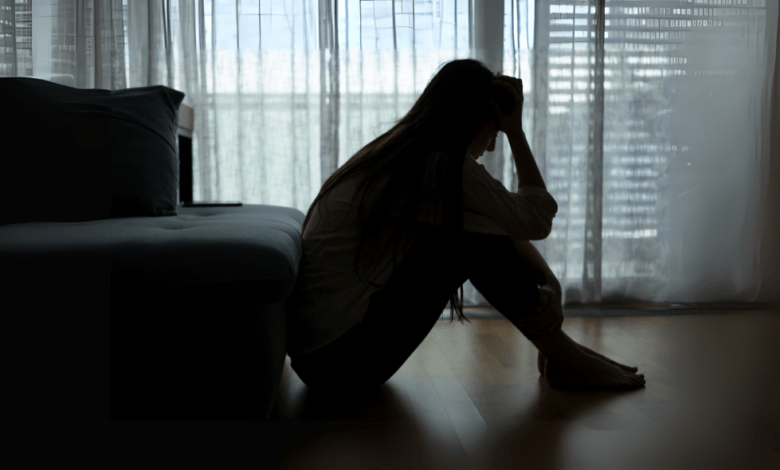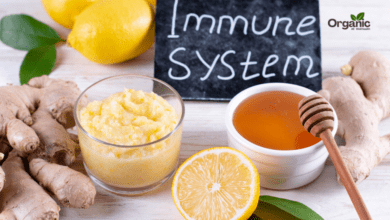What Are the Types of Therapy for Depression?

Depression is a complex and challenging mental health condition that affects millions of people worldwide. Recognizing the need for proper support and treatment is crucial for recovery and long-term well-being. When people ask, “What are the types of therapy for depression?”, they are seeking effective solutions to help manage symptoms, improve coping strategies, and regain control over their lives. This comprehensive article, brought to you by the team at allwellhealthorganic, explores the various therapy options available, providing in-depth insight into how they work and when they are most beneficial.
Understanding Depression and Its Treatment
Depression is not simply about feeling sad or low. It is a medical condition that impacts emotional, cognitive, and physical health. While medication is one treatment avenue, many people benefit from different forms of therapy. When considering what are the types of therapy for depression, it is essential to understand that therapies are designed to address both the biological and psychosocial factors associated with the disorder.
Current research shows that psychotherapy and medications both cause positive changes in brain function, and often a combination of both provides the best results. The allwellhealthorganic team highlights that choosing the right therapy can depend on personal preference, symptom severity, and individual circumstances.
The Major Types of Therapy for Depression
Let’s explore the most recognized and evidence-based therapeutic approaches to treating depression.
Cognitive Behavioral Therapy (CBT)
When exploring what are the types of therapy for depression, Cognitive Behavioral Therapy (CBT) often tops the list. CBT is a short-term, structured form of psychotherapy that focuses on identifying and altering negative thought patterns and behaviors that contribute to depression.
A therapist guides patients to recognize distortions in thinking, challenge these thoughts, and replace them with healthier alternatives. CBT also teaches behavioral skills, helping individuals re-engage in activities that bring a sense of accomplishment and joy.
Research demonstrates that CBT is highly effective in treating depression and reducing relapse rates. Combining CBT with antidepressant medication can provide enhanced benefits compared to medication alone.
Interpersonal Therapy (IPT)
Another key therapy type when discussing what are the types of therapy for depression is Interpersonal Therapy (IPT). IPT addresses depression that stems from interpersonal conflicts, relationship difficulties, or major life changes such as grief or job loss.
This form of therapy focuses on improving communication skills, enhancing social support networks, and resolving conflicts in relationships. Typically lasting 12-16 weeks, IPT is especially beneficial for those whose depressive symptoms are linked to social stressors. Studies have shown IPT to be highly effective in reducing depressive symptoms and improving social and occupational functioning.
Mindfulness-Based Therapies
When discussing what are the types of therapy for depression, mindfulness-based therapies are increasingly recognized for their benefits. These include Mindfulness-Based Cognitive Therapy (MBCT) and Mindfulness-Based Stress Reduction (MBSR).
These approaches combine traditional cognitive therapy with mindfulness strategies, teaching patients to observe thoughts and emotions without judgment. By staying anchored in the present moment, individuals can break the cycle of ruminative thinking that fuels depression.
Mindfulness-based therapies help build resilience, improve emotional regulation, and reduce the risk of relapse, particularly in individuals who have experienced recurrent depression.
Dialectical Behavior Therapy (DBT)
DBT is another noteworthy addition when asking, what are the types of therapy for depression? Initially developed for borderline personality disorder, DBT has shown effectiveness for individuals struggling with severe mood disorders.
DBT blends cognitive-behavioral strategies with mindfulness practices, emphasizing emotional regulation, distress tolerance, and interpersonal effectiveness. By learning these skills, individuals can better manage intense emotions and improve relationships, which can significantly alleviate depressive symptoms.
Psychodynamic Therapy
Rooted in the pioneering work of Freud and Jung, Psychodynamic Therapy explores how unconscious thoughts and past experiences shape present behavior and mood.
Those interested in a deeper exploration of what are the types of therapy for depression will appreciate that psychodynamic therapy offers long-term benefits by addressing core emotional conflicts and increasing self-awareness.
Empirical evidence supports the efficacy of psychodynamic therapy, particularly in cases of chronic depression.
Effective Techniques in Depression Therapy
Beyond the primary types of therapy, several therapeutic techniques are used across modalities to treat depression:
Behavioral Activation
This technique encourages individuals to engage in positive and rewarding activities, helping to break the cycle of withdrawal and inactivity that often accompanies depression.
Problem-Solving Therapy
This practical approach teaches structured problem-solving skills to tackle real-life challenges that contribute to depressive symptoms.
Mood Monitoring
Tracking mood patterns and triggers can enhance awareness and facilitate early intervention when symptoms begin to worsen.
Goal Setting
Establishing realistic, achievable goals helps foster a sense of accomplishment and purpose, boosting self-esteem.
Cognitive Restructuring
This involves identifying and challenging negative thought patterns and replacing them with more balanced and constructive alternatives.
Mindfulness and Meditation
Mindfulness exercises promote emotional regulation and reduce stress by encouraging nonjudgmental awareness of thoughts and feelings.
Relaxation Techniques
Deep breathing, progressive muscle relaxation, and guided imagery help manage anxiety and physical tension associated with depression.
Gratitude Journaling
Focusing on positive experiences and maintaining a gratitude journal can help shift attention away from negative thought patterns.
When Is Medication Recommended Alongside Therapy?
While many ask what are the types of therapy for depression seeking alternatives to medication, it is important to note that medication can play a crucial role, particularly for those with moderate to severe depression.
Combining therapy with antidepressant medication is often more effective than either approach alone. The allwellhealthorganic team advises discussing the pros and cons of medication with a qualified healthcare provider to determine the best treatment plan.
How to Choose the Right Type of Therapy
Selecting from the various types of therapy for depression can feel overwhelming. The best choice depends on several factors:
- Symptom severity and type
- Personal preferences
- Therapist expertise
- Access to treatment resources
- Specific challenges, such as relationship difficulties or trauma history
Working with a mental health professional can help tailor an approach that aligns with individual needs and maximizes the likelihood of recovery.
Final Thoughts:- Therapy as a Path to Healing
Depression can feel isolating and overwhelming, but therapy provides a powerful path toward healing and hope. When asking what are the types of therapy for depression, it’s reassuring to know there are many evidence-based options available.
From CBT and IPT to mindfulness-based approaches and psychodynamic therapy, each offers unique benefits tailored to individual needs. The team at allwellhealthorganic encourages anyone struggling with depression to explore these therapies and consult with mental health professionals to find the most suitable path forward.
Remember, finding the right therapeutic fit is a journey — but it is one worth taking. Therapy can provide the support, strategies, and skills needed to build resilience, foster well-being, and create a brighter future.
FAQs on What Are the Types of Therapy for Depression?
1. What therapy is best for depression?
There is no single best therapy; CBT is widely studied and effective, but the choice depends on individual needs and preferences.
2. Can therapy work without medication?
Yes. Many people experience significant relief from depression through therapy alone, though others may benefit from combined treatment.
3. How long does therapy for depression take?
It varies. Short-term therapies like CBT or IPT may last 12-16 weeks, while psychodynamic therapy could extend longer, depending on individual goals.

